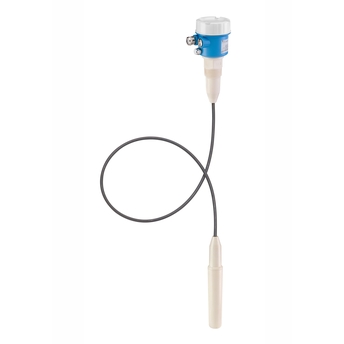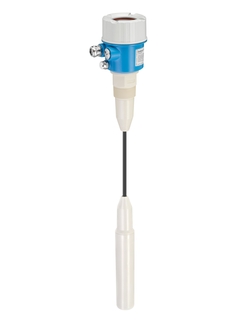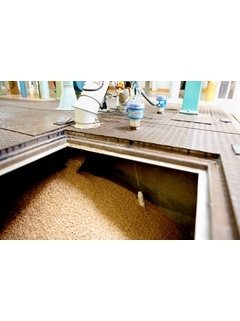-
Measuring principle
Capacitive Solid
-
Characteristic / Application
No calibration on start-up
Active build-up compensation
Mechanically robust
The rope probe can be shortened
(optimum matching to the measuring point) -
Specialities
Rope shortening parts to be supplied by the customer
-
Supply / Communication
10,8 … 45V DC, DC-PNP 3-wire
20 … 253V AC, or
20 … 55V DC, Relay output -
Ambient temperature
-40 °C … 80 °C(-40 °F … 176 °F)
-
Process temperature
-40 °C … 80 °C
(-40 °F … 176 °F) -
Process pressure / max. overpressure limit
-1 … 6 bar(-14.5 … 90 psi)
-
Main wetted parts
PPS = Polyphenylene sulphide
(glass fibre content approx. 40%) -
Max. tensile strength
3000 N
-
Process connection
R 1 1/2
NPT 1 1/2 -
Sensor length
min. 500 mm (20″), max 6000 mm (236″)
-
Communication
PNP transistor output
Relay output (potential-free
change-over contact / SPDT) -
Certificates / Approvals
ATEX , FM, CSA, NEPSI, EAC
-
Options
Aluminium Housing
-
Application limits
Solids, grain size max. 30 mm (1.2″),
DK min 1,5
Flexural strength 1400 N (at probe tip)
Field of application
Minicap FTC262 is a simple and cost-effective rope probe for point level detection in bulk solids, particularly suited to applications involving aggressive media and heavy build-up. It is designed for point level detection of light bulk solids, e.g. grain products, flour, milk powder, animal feed, cement, chalk or gypsum.
For point level detection of light bulk solids, with a grain size up to max. 30mm and a dielectric constant εr ≥ 1.6. Typical applications: Grain products, flour, milk powder, animal feed, cement, chalk or gypsum.
Process connection: Threads
Temperature: -40 to +80°C (-40 to +176°F)
Pressure: -1 to +6bar (-14.5 to +90psi)
Sensor length: 500mm (20″) to 6,000mm (236″)
International explosion protection certificates, overfill prevention WHG
Benefits
Simple mounting and commissioning without calibrationMechanical safety, cost-efficiency and long operating life due to no wearing partsHigh operational safety and reliability due to active build-up compensationOptimized storage by simply shortening the rope probe on site



